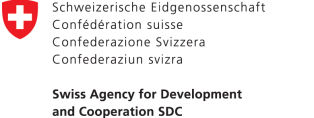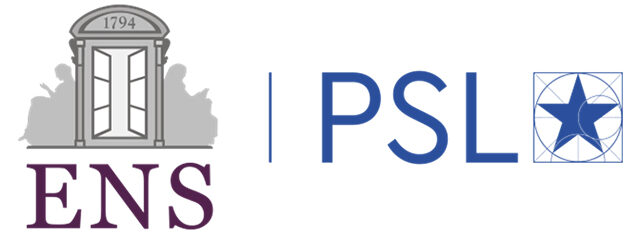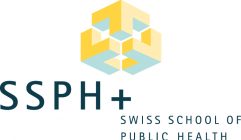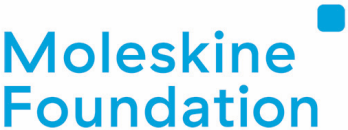MEM Summer Summit 2019
Seminar 2019
Programme
The programme consisted of a series of plenary session and workshops, thematically separated into three streams – “New Dynamics of the Middle East Mediterranean Region”, “Middle East Mediterranean Region: Governance, Administration, and Policy Making”, “Middle East Mediterranean Region: Cultural Narratives”.
Full programme of the Seminar 2019: MEM_Summer_Summit_2019_Seminar_Programme
Speakers

CAROLINE ABU SA’DA
President, ONG SOS Méditerranée, France

EMILIANO ALBANESE
Professor, Università della Svizzera italiana, Switzerland

ANNA ANTONIOS
Programme Officer, Swisspeace, Switzerland
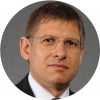
FABRICE BALANCHE
Associate Professor, University of Lyon, France

SALEH BARAKAT
Art Expert, Gallery Owner and Curator, Gallery Agial/Saleh Barakat, Lebanon
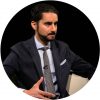
SOUHAÏL BELHADJ
Research Associate, Graduate Institute, Switzerland

RICCARDO BOCCO
Professor, Graduate Institute, Switzerland

ADHAM DARAWSHA
Assessor for Cultures and Democratic Participation, Municipality of Palermo, Italy

FEDERICA DE ROSSA
Professor and Director, Institute of Law, Università della Svizzera italiana, Switzerland

GABRIELE DERIGHETTI
Deputy Head MENA Division, Federal Department of Foreign Affairs (FDFA), Switzerland

ISHAC DIWAN
Professor, PSL – Paris Sciences et Lettres; École normale supérieure, France

JOLANTA DRZEWIECKA
Professor, Institute for Public Communication, Università della Svizzera italiana, Switzerland

RABIH EL CHAMMAY
Psychiatrist, Saint Joseph University, Lebanon

MARTA FADDA
Postdoctoral Researcher, Università della Svizzera italiana, Switzerland

FEDERICA FREDIANI
Ph.D. Senior Researcher, Educational Program Manager MEM Freethinking Platform, Università della Svizzera italiana, Switzerland

SARA GRECO
Assistant Professor, Faculty of Communication Sciences, Università della Svizzera italiana, Switzerland
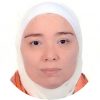
ABIR HAJ IBRAHIM
Co-Founder and Board Member, Modaberoon Network, Syria

MARC-ANDRÉ HALIDMANN
Research Associate, University of Bern, Switzerland

MARLEN HEIDE
Ph.D. Student, Institute for Public Communication, Università della Svizzera italiana, Switzerland

JEAN-JACQUES HIBLE
Policy Analyst, Public Governance Directorate, OECD, Switzerland

JULIAN HOTTINGER
Expert and Mediator, Federal Department of Foreign Affairs (FDFA), Switzerland
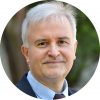
TOMASZ JANOWSKI
Professor and Head of Department of Applied Informatics in Management, Gdańsk University of Technology, Poland; Professor, Danube University Krems, Krems, Austria

ALEXANDRE KAZEROUNI
Associate Professor, Ecole Normale Supérieure, France

GILLES KEPEL
Professor, PLS Paris Sciences et Lettres-École normale supérieure, France; Adjunct Professor and Scientific director of the Middle East Mediterranean Freethinking Platform, Università della Svizzera italiana, Switzerland

FYRAS MAWAZINI
Country Director for Morocco and Tunisia, Drosos Foundation, Switzerland
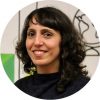
DIMA MOHAMMED
Senior Researcher, Universidade Nova de Lisboa, Portugal
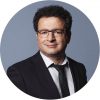
EL MOUHOUB MOUHOUD
Professor, University of Paris Dauphine PSL, France

SILVIA NAEF
Professor, Université de Genève, Switzerland
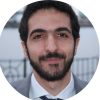
IBRAHIM OLABI
Executive Director and Founder, Syrian Legal Development Programme, Syria

JUANITA OLAYA
Lawyer, Independent Expert; Chair, UNCAC Coalition, Germany

HELA OUARDI
Professor, Université de Tunis, Tunisia

FRANCESCA PIANA
Historian, Université de Genève, Switzerland

GIOVANNI PICA
Professor, Università della Svizzera italiana, Switzerland

FRANCIS PICCAND
Head, Think-Tank Middle East and North Africa, Federal Department of Foreign Affairs (FDFA), Switzerland

NADIA REDISSI
Training manager, Maison de l’Image, Tunisia
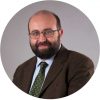
ANDREA ROCCI
Dean and Professor, Faculty of Communication Sciences, Università della Svizzera italiana, Switzerland
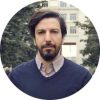
IBRAHIM SAÏD
Research Associate, Centre of Conflict, Development and Peacebuilding (CCDP); Co-founder, Think-Ahead, Switzerland

SAMIR
Filmmaker, Producer, Author, and Film Director, Switzerland

MARK THATCHER
Professor, Libera Università Internazionale degli Studi Sociali (LUISS) Guido Carli, Rome, Italy
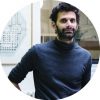
YVES UBELMANN
President and Co-founder, Iconem, France
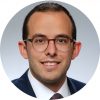
LUCA URECH
Swiss Career Diplomat and Syria Programme Manager, Human Security Division, Federal Department of Foreign Affairs (FDFA), Switzerland

LIISA VÄLIKANGAS
Professor, Hanken School of Economics, Finland

ELINE VAN DER VLIST
Artistic Director, Darat al Funun-The Khalid Shoman Foundation, Jordan

COSTA VAYENAS
Director, Procivis Think Tank, Switzerland

JEAN-PATRICK VILLENEUVE
Professor and Vice-Director, Institute for Public Communication, Università della Svizzera italiana, Switzerland
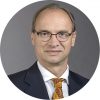
PIO WENNUBST
Vice Director General, Swiss Agency for Development and Cooperation (SDC), Federal Department of Foreign Affairs (FDFA), Switzerland
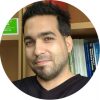
DIMITRIOS XEFTERIS
Assitant Professor, University of Cyprus, Cyprus
Forum 2019
Programme
The second edition of the Middle East Mediterranean Summer Summit involved around 100 young change-makers from over 30 countries of the Middle East Mediterranean region and Europe. Organised by Università della svizzera italiana (USI) with the joint support of the Swiss Federal Department of Foreign Affairs and the French Ministry for Europe and Foreign Affairs, the meeting aimed to develop innovative solutions and concrete opportunities for dialogue and growth.
On 24 and 25 August 2019, after an intense eight-day Seminar, the ideas generated and formulated by the young change-makers were presented and debated in the framework of a Forum, open to the public. Forum attendees included high-level political authorities, experts, intellectuals, and entrepreneurs of the Middle East Mediterranean region.
Full programme of the Forum 2019: MEM_Summer_Summit_2019_Forum_Programme
Speakers
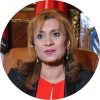
SOUAD ABDERRAHIM
Mayor of Tunis, Tunisia
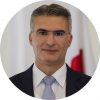
HE CARMELO ABELA
Minister, Ministry for Foreign Affairs and Trade Promotion, Republic of Malta

EMILIANO ALBANESE
Professor, Università della Svizzera italiana; Director, WHO Collaborating Center for Research and Training in Mental Health, University of Geneva, Switzerland

ROBERTO ANTONINI
Journalist, RSI Radiotelevisione svizzera, Switzerland

MANUELE BERTOLI
State Councilor, Republic and Canton of Ticino, Switzerland

MARCO BORRADORI
Mayor, City of Lugano, Switzerland
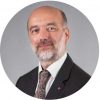
LORENZO CANTONI
Prorector and Professor, UNESCO Chair, Università della Svizzera italiana, Switzerland

OLMO GIOVANNINI
Film historian, Communication Officer at the Dicastero cultura, sport ed eventi, City of Lugano, Switzerland

MARINA CAROBBIO GUSCETTI
President, National Council, Switzerland

HE IGNAZIO CASSIS
Head of the Department of Foreign Affairs (FDFA), Switzerland

CRISTIAN CHIAVETTA
Environmental Engineer and Industrial Researcher, Italian National Agency for New Technologies, Energy and Sustainable Economic Development ENEA, Italy

LORENZO CREMONESI
Journalist and Middle East Correspondent, Corriere della Sera, Italy

ISHAC DIWAN
Professor, PSL – Paris Sciences et Lettres, École normale supérieure, France
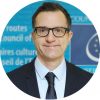
STEFANO DOMINIONI
Executive Secretary, Council of Europe Enlarged Partial Agreement on Cultural Routes (EPA); Director of the European Institute of Cultural Routes, Luxembourg

RABIH EL CHAMMAY
Psychiatrist, Saint Joseph University, Lebanon
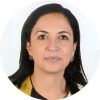
MAHA EL-ADAWY
MD and Director, Health Protection and Promotion, WHO Office Regional Office for the Eastern Mediterranean, Egypt
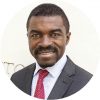
LAZARE ELOUNDOU ASSOMO
Director, Culture and Emergencies, UNESCO, France
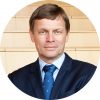
BOAS EREZ
Rector, Università della Svizzera italiana, Switzerland

AMOS GITAÏ
Filmmaker and Author, Israel

ENRICO GRANARA
Minister Plenipotentiary, Coordinator Euro-Mediterranean Multilateral Activities, Directorate General for Political and Security Affairs, Italian Ministry of Foreign Affairs and International Cooperation MAECI, Italy

SUZY HATOUGH
Director, Middle East Travel and Tourism Development Network, Middle East University, Jordan
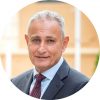
NASSER KAMEL
General Secretary, Union for the Mediterranean UPM, Spain

KARIN KNEISSL
Ambassador; Former Minister of Foreign Affairs; Analyst, Austria

GILLES KEPEL
Professor and Scientific Director of the Middle East Mediterranean Freethinking Platform, Università della Svizzera italiana, Switzerland; PLS Paris Sciences et Lettres-École Normale Supérieure, France

ELENA KORZHENEVICH
Co-Founder and AtWork Program Director, Moleskine Foundation, Italy

DEREK LUTTERBECK
Deputy Director and Holder of the Swiss Chair, Mediterranean Academy of Diplomatic Studies MEDAC, University of Malta, Malta
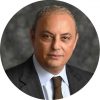
SAFWAN M. MASRI
Executive Vice President for Global Centers and Global Development, Columbia University, USA

EL MOUHOUB MOUHOUD
Professor, University of Paris Dauphine PSL, France
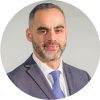
EDUARDO SANTANDER
Executive Director, European Travel Commission (ETC), Belgium

BENEDETTO SARACENO
Psychiatrist; Director Department of Mental Health and Substance Abuse of WHO, SG Lisbon Institute for Global Mental Health, Italy and Portugal
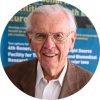
HERWIG FRANZ SCHOPPER
Advisor, Experimental Physicist, Former Director General CERN and one of the Founding Fathers of SESAME, Middle East, Jordan

ROLLA SCOLARI
Journalist, Italy

YVES UBELMANN
President and Co-founder, Iconem, France

TARIK M. YOUSEF
Director, Brookings Doha Center, Qatar; Board Member, Central Bank of Libya, Libya

PIO WENNUBST
Vice Director General, Swiss Agency for Development and Cooperation (SDC), Federal Department of Foreign Affairs (FDFA), Switzerland
What are the roots that clutch, what branches grow
Out of this stony rubbish?
T. S Eliot, The Waste Land, 1922
Cultural Dimension 2019
The exhibition Broken cities. A virtual journey from Syria to Iraq proposed an imaginary route to four cities laid waste by conflicts whose violence has over recent years turned them into theatres of war. Pictures of Damascus, Aleppo, Palmyra, and Mosul told their story, a fragmentary story, of this devastation. The landscape of ruins, in Marc Augé’s words, “cannot reproduce the past in its integrity; rather, it alludes intellectually to a multiplicity of ‘pasts’, somehow metonymically, it supplies our eye and our conscience with a dual proof of a lost functionality and an impressive actuality” (Marc Augé, 2003).
Lines from T.S. Eliot’s poem The Waste Land (1922) and others from The Suspended Ode by Imru’ al-Qays (6th century), invited the viewer to a moment of silence, stillness, and meditation, outside time. The exhibition layout was structured in three stages:
Stage one
Stage one displayed photographs by Iconem, a French start-up. Interspersed with literary quotations, these photographs revealed unusual views of the cities and invited the viewers to raise questions about the rubble, the ruins and the meaning of time. It is in the eye of the beholder that the fragments will come to life and take on meaning. The pictures showed piles of rubble: wreckage present of ruins past.
Stage two
In stage two, the documentary Mosul year zero by Roberto Antonini and Philippe Blanc beared testimony to what is left of Mosul, three years after the Isis Caliphate and one year’s fighting. The voices of witnesses are heard over the images, narrating their sad tales of loss and destruction. Besides the documentary, a number of freeze-frames represented crumbled landscapes of Mosul, as well as of Damascus, Aleppo, and Palmyra.
Stage three
Stage three consisted essentially in an immersive cam, the work of e-REAL Logosnet, whereby visitors were able to watch videos produced by Iconem and by Unesco. With extremely striking images, this all-absorbing experience engulfed the eye of the visitors, who found themselves suspended between past and present, here and there, destruction and reconstruction.
The Lugano Initiative 2019
‘The Lugano Initiative. Proposals developed by young change-makers during the Middle East Mediterranean Summer Summit 2019’ is a document that collects concrete proposals for development and growth in the MEM region, developed and drawn up during the MEM Summer Summit 2019. The main contributors are the 100 young change-makers, who worked together across cultural differences and national identities.
Download the document: The Lugano Initiative – MEM Summer Summit 2019


